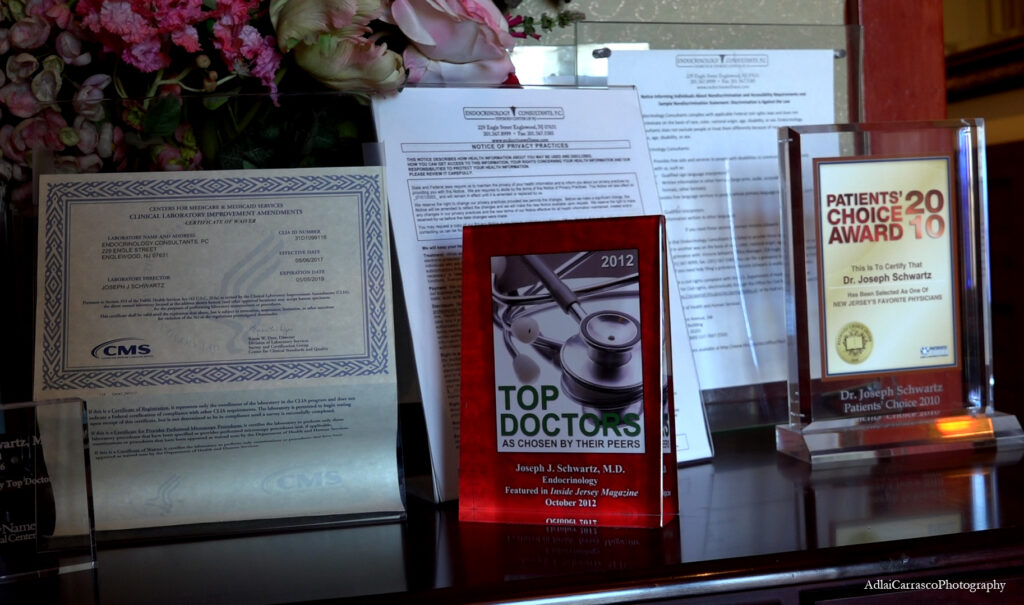Menopause
What Is Menopause?
Menopause is a natural process that all women experience as they age, typically occurring between 45 and 55 years old. Although it is a normal process, it can cause a variety of symptoms that can range in severity from person to person. The most common symptom of menopause is the absence of menstrual periods. Natural menopause is defined as the permanent cessation of menstrual periods, determined after a woman has gone 12 consecutive months without a period, without any other underlying medical cause. It occurs at a median age of 51 years old and reflects the natural reduction in ovarian follicle production. These follicles typically release estrogen, and without the production of ovarian follicles, the levels of estrogen and progesterone in women’s bodies deplete. This depletion causes the levels of brain hormones, known as LH and FSH, to increase since they normally signal the ovaries to produce estrogen and progesterone.

What Is Perimenopause?
Prior to a woman’s last menstrual period, she may go through a multi-year transition known as perimenopause. The average duration of perimenopause is 4 years. Once there has been no menstrual cycle for at least 12 months, the permimenopause has advanced to menopause. During this phase, periods may increase in intervals, and a range of symptoms can occur due to the reduction in estrogen and progesterone production. Perimenopause is characterized by irregular menstrual cycles, marked hormonal fluctuations, hot flashes, sleep disturbances, mood changes, and vaginal dryness. Additionally, during this time, women may experience high cholesterol and bone loss, which can have long-term health consequences. Hot flashes, also referred to as vasomotor symptoms or hot flushes, are the most common symptom during the menopausal transition and menopause, occurring in around 80% of women. Typically, these symptoms are mild and do not require treatment. When hot flashes occur at night, women typically describe them as “night sweats.”
What are the symptoms of Menopause?
Hot flashes usually begin as a sudden sensation of heat centered on the upper chest and face that quickly becomes generalized. This sensation of heat lasts from two to four minutes, is often associated with profuse perspiration and occasionally palpitations, and is sometimes followed by chills and shivering, and a feeling of anxiety. Hot flashes can occur several times a day, with some women experiencing them every hour during the day and night. Other symptoms of menopause include joint aches, breast pain, depression, brain fog, and migraines, all of which can be managed with symptom management.
What Are The Risks of Menopause?
One significant long-term consequence of menopause is the reduction of bone mineral density, which can lead to osteoporosis. Women should have a bone mineral density scan to assess for possible osteoporosis with repeat testing over time. Osteoporosis does not cause any acute short-term pain episodes but rather increases the risk of developing a fracture if one were to have an accident or a fall, specifically at the hip and spine regions.
What Are The Possible Treatments For Menopause?
The treatment of menopause, if necessary, is related to symptom management, often through lifestyle modification, supplements, medications, or menopausal hormone therapy (MHT), which supplements the body’s natural depletion of estrogen and progesterone, the cause of menopause in the first place. The primary goal of MHT is to relieve hot flashes. Other symptoms associated with perimenopause and menopause that respond to estrogen include sleep disturbances, mood changes, and joint aches and pains. However, MHT does come with a risk of causing breast and endometrial cancer, and it is often avoided unless absolutely necessary. When considering menopausal hormone therapy (MHT), we avoid starting treatment in women with a history of breast cancer, coronary heart disease, prior venous thromboembolic (VTE) events (such as a pulmonary embolism), or stroke / transient ischemic attack active liver disease, unexplained vaginal bleeding, or endometrial cancer.
While menopause is a natural occurrence that all women experience, it can produce symptoms that significantly impact a person’s well-being. MHT is not suitable for everyone, but for those who are healthy and symptomatic within 10 years of reaching menopause and/or younger than 60 years, it can be beneficial.
Treatment regimens for different endocrine disorders can include supplements, medication, lifestyle changes, and consultations with recommended specialists. Our Women’s Health Endocrinology specialists will order relevant blood tests from our in-house labs, and schedule consultations to discuss next steps.

